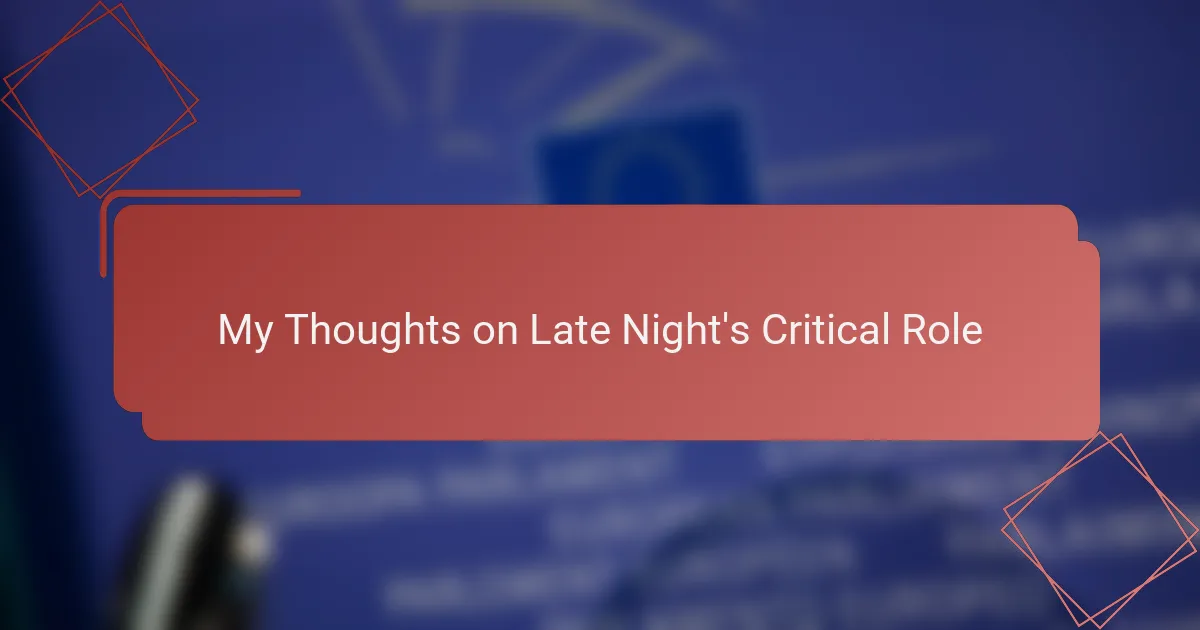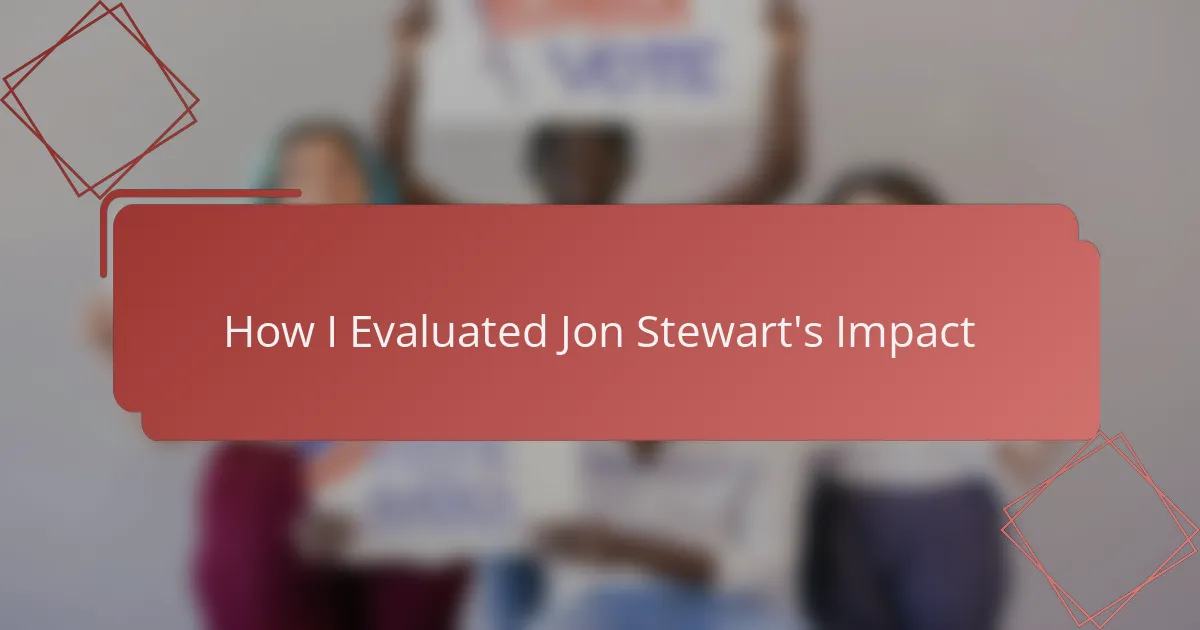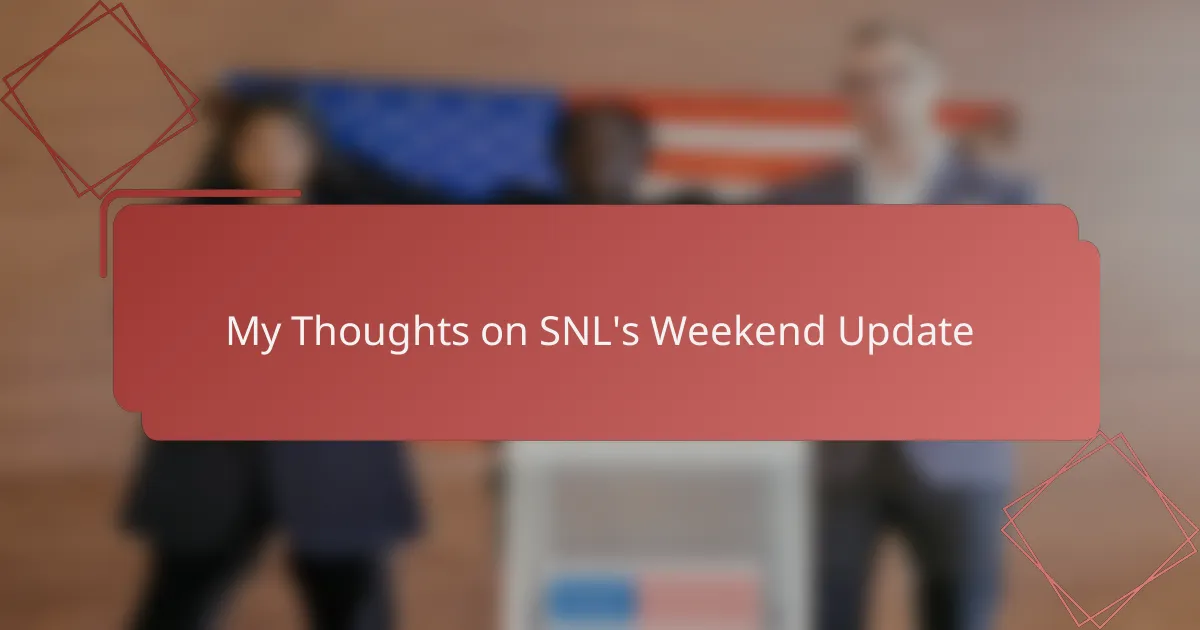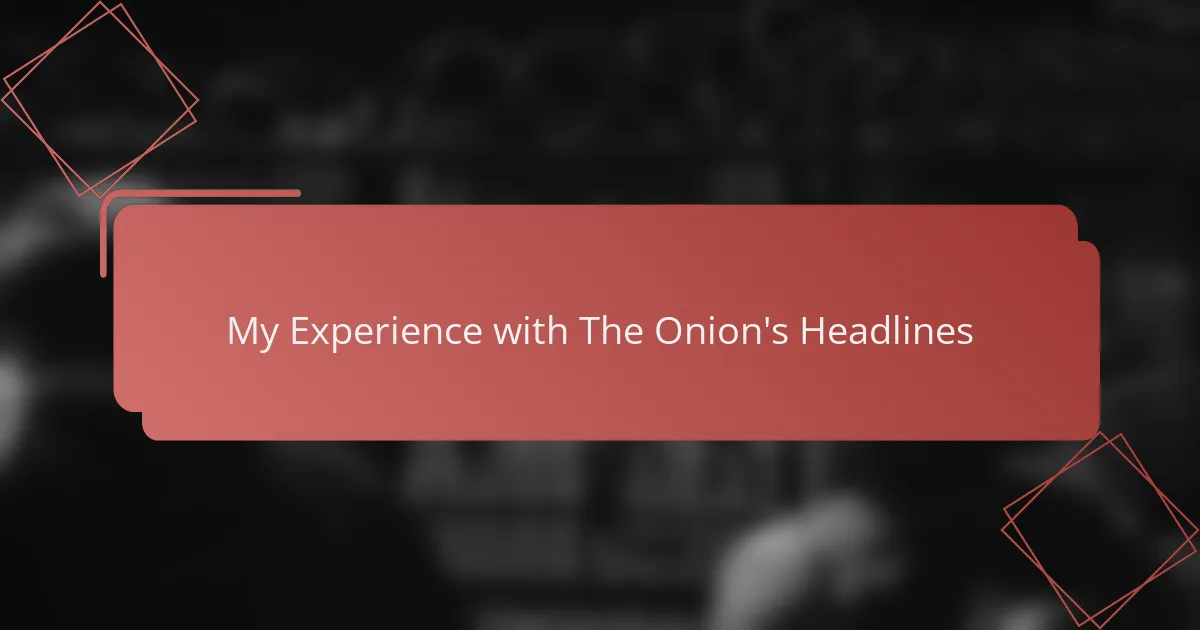Key takeaways
- Political satire utilizes humor and irony to reveal societal flaws and provoke critical thought.
- Late night shows provide accessible commentary on political issues, blending entertainment with accountability.
- Critical Role employs exaggeration and irony in storytelling to reflect real-world political dynamics, engaging its audience deeply.
- The immersive nature of role-playing fosters empathy and a nuanced understanding of political struggles among viewers.
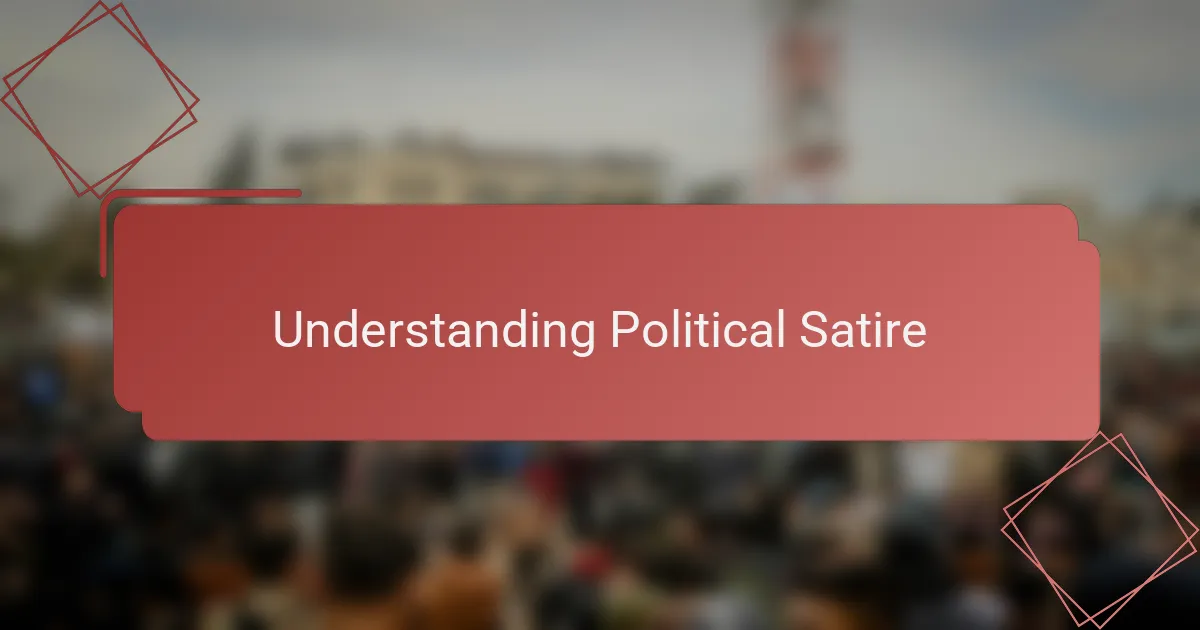
Understanding Political Satire
Political satire has always fascinated me because it holds a mirror to society, reflecting its flaws through humor and irony. Have you ever noticed how a well-crafted joke can reveal uncomfortable truths more effectively than a serious debate? That subtle balance between critique and comedy is what makes political satire so powerful and enduring.
From my experience, understanding political satire requires more than just catching the punchline; it demands attention to context and nuance. I recall watching a satirical news show where a simple sketch about bureaucratic inefficiency made me rethink my own frustrations with government red tape. It’s in those moments that satire transcends entertainment—it provokes thought.
What intrigues me most is how political satire can unite people across divides by poking fun at universal political absurdities. But it also challenges us—are we willing to laugh at ourselves, or do we take offense too quickly? This tension keeps political satire vibrant and relevant, inviting us to engage critically while still enjoying the wit.
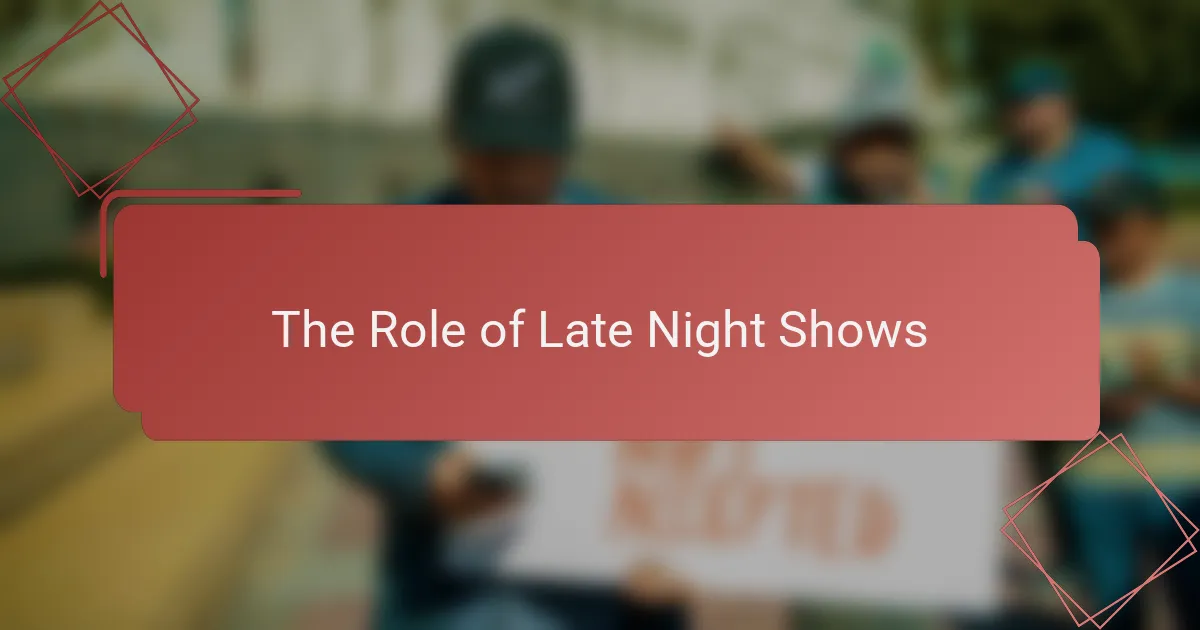
The Role of Late Night Shows
Late night shows have always held a unique spot in my viewing habits because they blend humor with current events in such an accessible way. I often find myself surprised by how these shows can break down complex political issues into sharp, witty commentary that sticks with me long after the episode ends. Have you ever noticed how a well-timed joke on a late night program can make the news feel less overwhelming and more relatable?
What truly sets late night shows apart is their ability to respond rapidly to the day’s chaos, offering immediate satire that feels fresh and pointed. I remember tuning in after a particularly tense political event, only to find the host dissecting it with humor that was both insightful and cathartic. That mix of laughter and critique, delivered night after night, creates a space where viewers can digest serious topics without feeling defeated.
Sometimes I wonder, do these shows simply entertain us, or do they play a bigger role in shaping public opinion? From my viewpoint, they do both—they hold leaders accountable while making the political landscape more approachable. That’s why I think their role in political satire is not just significant but essential in today’s fast-paced media environment.
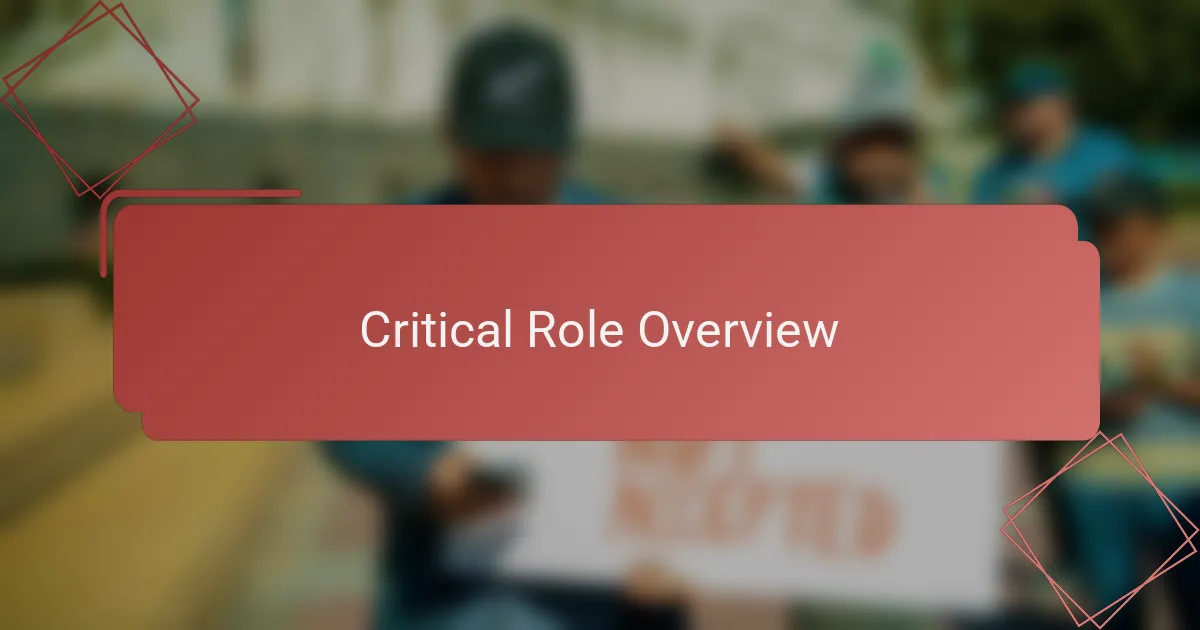
Critical Role Overview
Critical Role is a web series where a group of professional voice actors play Dungeons & Dragons, blending storytelling and improvisation. From my experience watching it, their genuine camaraderie and witty character interactions make it more than just a game; it feels like being part of an unfolding epic. I’ve found that the political intrigues woven into the narrative often reflect real-world power dynamics in a fascinating way.
| Aspect | Critical Role |
|---|---|
| Format | Tabletop Role-Playing Game (Dungeons & Dragons) |
| Cast | Professional voice actors |
| Storytelling | Improvised, rich character-driven narratives |
| Political Satire Elements | Subtle political power struggles and alliances embedded in plot |
| Audience Experience | Immersive, emotionally engaging, often humorous |
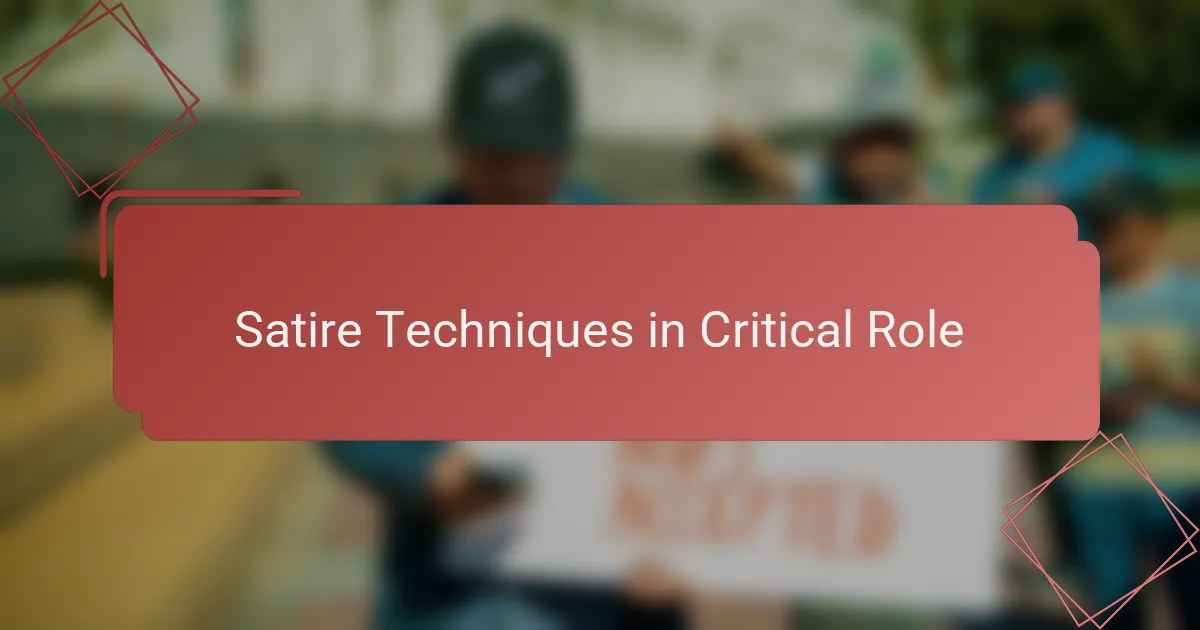
Satire Techniques in Critical Role
Satire Techniques in Critical Role
Critical Role skillfully employs exaggeration, using characters’ quirks and hyperbolic situations to reflect and critique real-world political absurdities. From my experience watching the show, this approach not only shapes comedic moments but also provides a thoughtful mirror to societal behaviors, much like the sharp wit of classic political satire.
The series also leans into irony, creating scenarios where characters’ intentions starkly contrast with outcomes, highlighting the unpredictability and sometimes the hypocrisy within political systems. I’ve found these ironic twists particularly engaging, as they provoke both laughter and reflection on how often politics unfold similarly in reality.
- Exaggeration of personality traits and political scenarios
- Irony in character decisions versus real-world political consequences
- Parody of leadership roles and decision-making processes
- Use of allegory to represent political ideologies and conflicts
- Blending humor with critique to maintain engagement without alienation
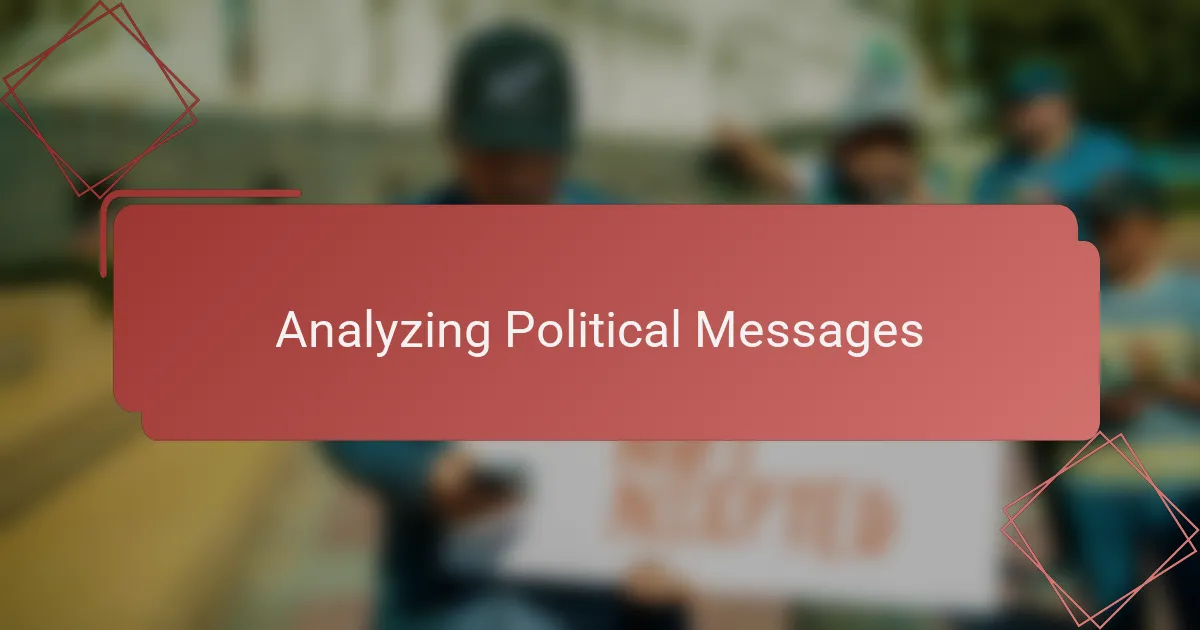
Analyzing Political Messages
Analyzing political messages in “Late Nights with Critical Role” reveals how humor and fantasy intertwine to critique real-world power dynamics. I’ve noticed that the show cleverly uses its fictional setting to reflect and dissect contemporary political issues, often making complex ideas feel accessible and engaging. This approach reminded me of how satire, when done right, can inspire both laughter and reflection.
| Aspect | Late Nights with Critical Role |
|---|---|
| Medium | Fantasy tabletop role-playing with political satire |
| Political Message Style | Subtle allegory mixed with humor and character-driven storylines |
| Engagement | Interactive storytelling that emotionally connects with the audience |
| Effectiveness | Balances entertainment with insightful critiques of power and governance |
| Memorability | Strong due to relatable characters and emotional investment |
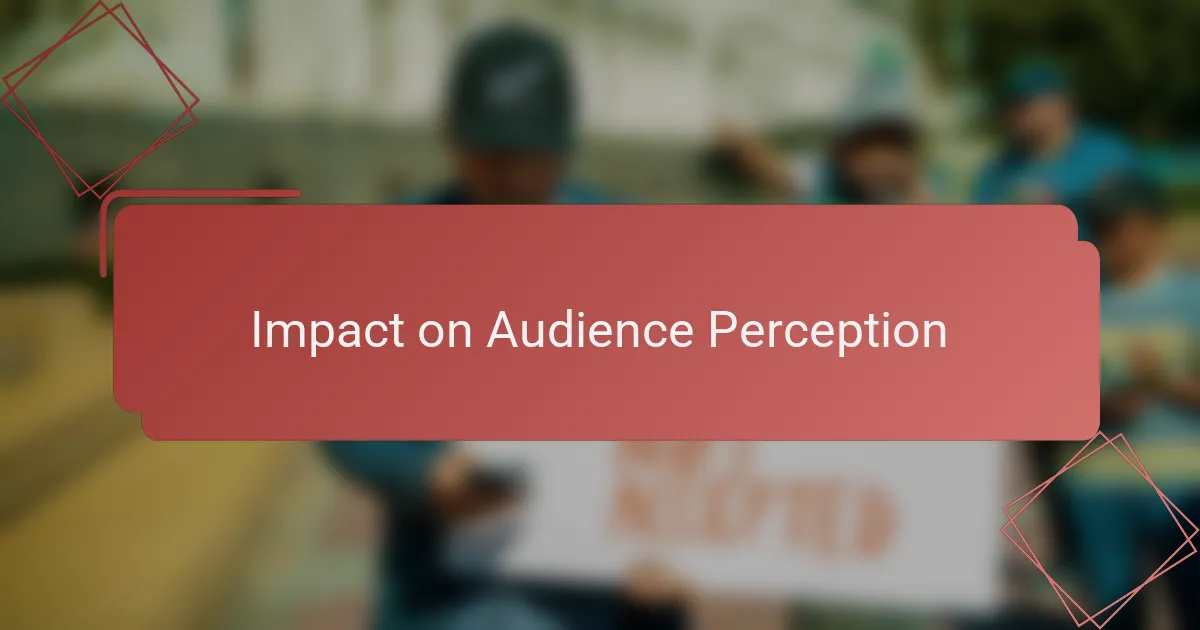
Impact on Audience Perception
When I watch “Late Nights with Critical Role,” I can’t help but notice how the audience’s perception shifts from passive viewing to active engagement. Have you ever found yourself genuinely rooting for a fictional character’s political maneuvering as if it mirrored actual government intrigue? That emotional connection makes the satire resonate more deeply, turning abstract political concepts into something tangible and urgent.
From my experience, the blend of humor and heartfelt storytelling in the show softens the blow of harsh political realities, making critiques feel less accusatory and more inviting. It’s fascinating how viewers often walk away not just entertained but also pondering the complexities of leadership and power, long after the episode ends. This lingering effect speaks volumes about the show’s impact on how we interpret political satire.
I’ve wondered, too, how much the immersive nature of the role-playing format shapes audience empathy for political struggles. By living through the characters’ decisions and dilemmas, viewers seem to develop a nuanced understanding of political dynamics that many traditional satire forms struggle to achieve. For me, this active participation transforms satire from mere commentary into an experience that challenges and enlightens simultaneously.
